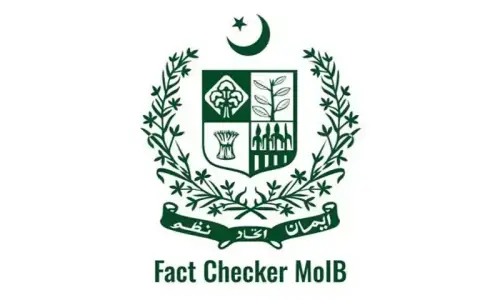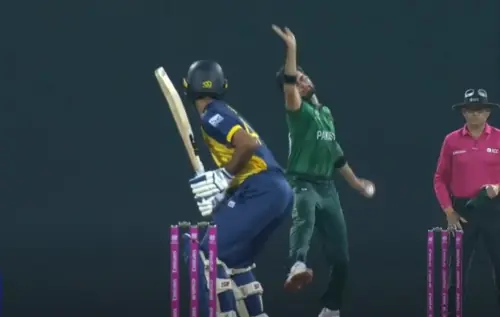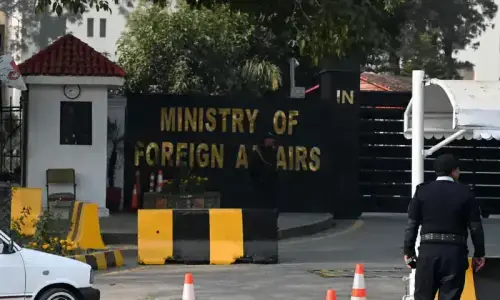Indian Prime Minister Narendra Modi on Friday said that water which 'belongs' to India cannot be allowed to flow into Pakistan, Indian Express reported.
"The fields of our farmers must have adequate water. Water that belongs to India cannot be allowed to go to Pakistan... The government will do everything to provide enough water to our farmers," the Indian PM said at the inauguration of the All India Institute of Medical Sciences in Bathinda.
Speaking in reference to the Indus Waters Treaty with Pakistan, the hardline Hindu nationalist denied being concerned with politics, even as his statements were termed a bid to woo Punjabi farmers by Indian media.
"We formed a task force on the Indus Waters Treaty to ensure the farmers of Punjab and other states get each drop of water due to them," Modi said.
The 1960 World Bank-mediated Indus Waters Treaty between India and Pakistan is considered one of the great success stories of water diplomacy, especially as it has survived the India-Pakistan wars of 1965, 1971, 1999 and much bad blood during and after the wars.
Under the treaty, which was signed by Prime Minister Jawaharlal Nehru and President Ayub Khan in Sept 1960, water of six rivers — Beas, Ravi, Sutlej, Indus, Chenab and Jhelum — are to be shared between the two countries.
Pakistan has said revocation of the Indus Waters Treaty can be taken as a 'hostile' act against Pakistan.
Read more: Revocation of Indus Waters Treaty can be taken as an act of war: Sartaj Aziz
Adviser to the Prime Minister on Foreign Affairs Sartaj Aziz earlier said that if India tries to interrupt water flow into Pakistan, it will not only violate the Indus Waters Treaty, but also set a regional state practice under which international law can be serve as a precedent. "It will provide China, for example, a justification to consider of suspension of waters of the Brahmaputra river," he said.
Read more: Brahmaputra dam not to affect India, says China
Tension between the two countries is again at a peak following an alleged Indian 'surgical strike', unrest in Kashmir and the Uri army base attack in September.
Since then there have been repeated outbreaks of cross-border firing in Kashmir, with both sides reporting deaths and injuries including of civilians.
The Indian premier's fresh statements come just days after Indian troops targeted a passenger bus and ambulance across the Line of Control, and killed three Pakistan Army soldiers and 10 civilians in various incidents of 'unprovoked' firing.
Modi stepped up a drive to isolate Pakistan diplomatically after the Uri army base attack in September in which 19 Indian soldiers were killed. Hours after the attack occurred, Indian Home Minister Rajnath Singh termed Pakistan a 'terrorist state' and accused Pakistan of involvement.
Shortly after, India decided to suspend Indus Water Commission talks until "Pakistan-sponsored terror" in India ended.
The Uri attack occurred days before Prime Minister Nawaz Sharif was set to address the United Nations General Assembly regarding Indian human rights violations in held Kashmir.
Following the attack, India claimed it had conducted a cross-border 'surgical strike' against 'launch pads of terror' in Azad Jammu and Kashmir — a claim Pakistan has strongly rejected.
Pakistan maintains that India is attempting to divert the world's attention away from atrocities committed by government forces in India-held Kashmir.
Pakistan and India have, most recently, locked horns over Kashmir since Indian forces stepped up a crackdown against protesters after Hizbul Mujahideen commander Burhan Wani was killed by government forces in July.


































